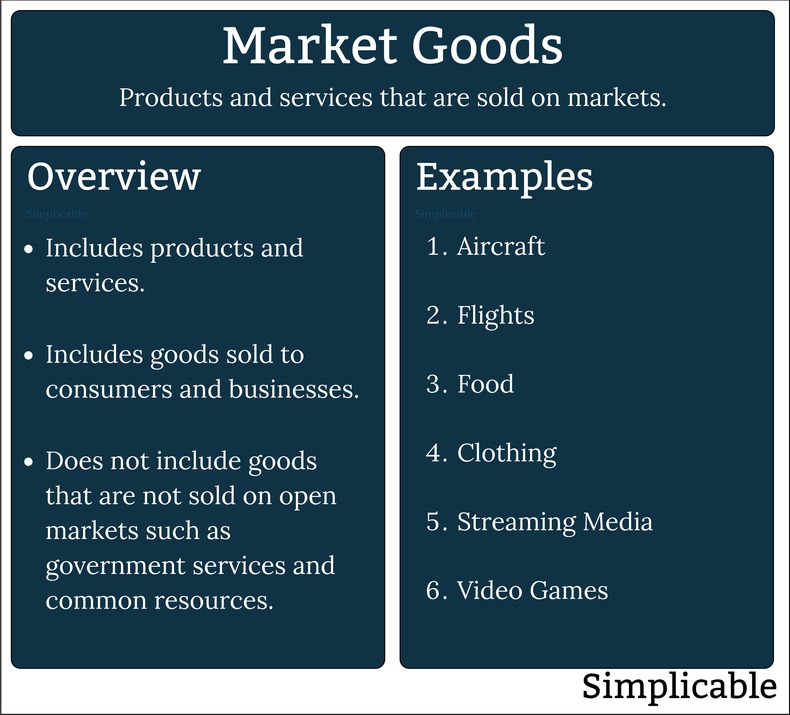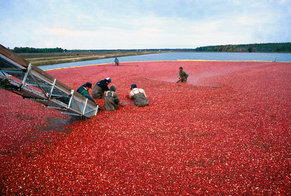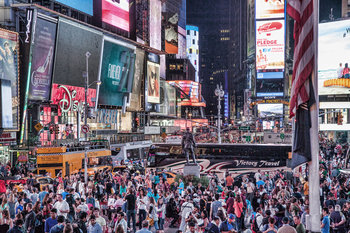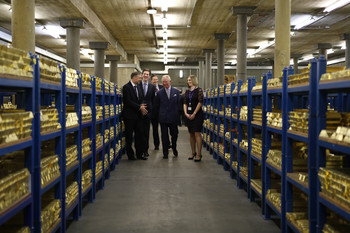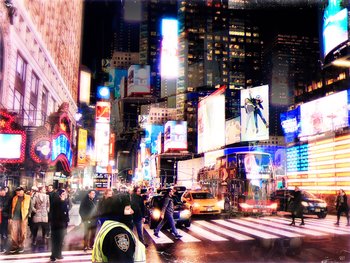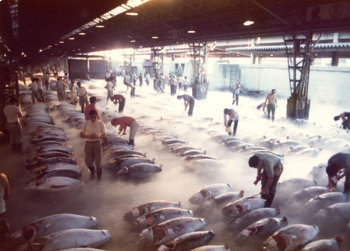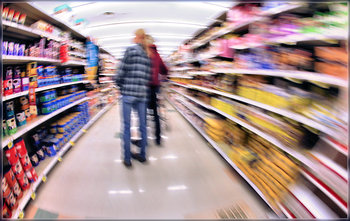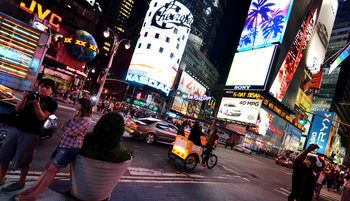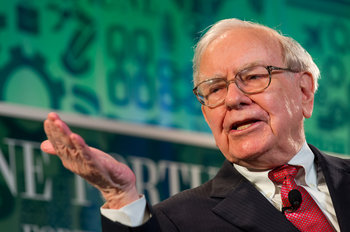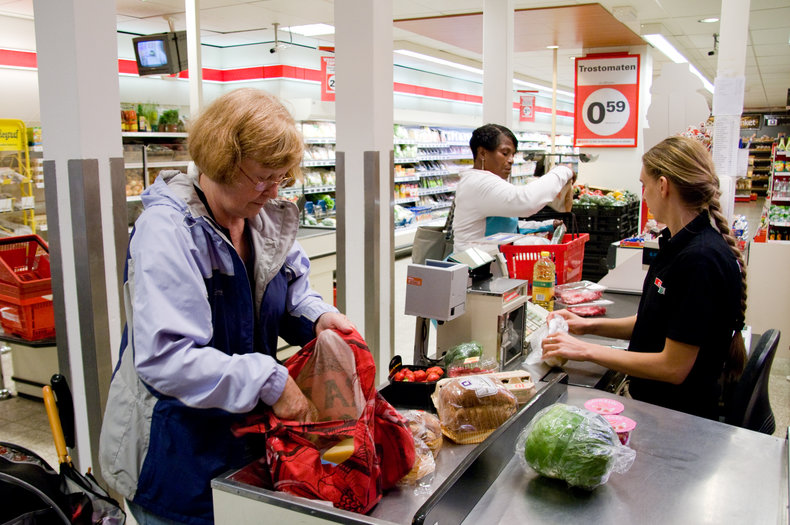
Antiques & Collectibles | Business Goods |
Business Services | Commodities |
Consumer Goods | Consumer Services |
Digital Products | Digital Services |
Durable Goods | Experience Goods |
Fast Moving Consumer Goods | Industrial Goods |
Luxury Goods | Non-Durable Goods |
Specialty Goods | Used Goods |
Counterexamples
Market goods do not include things like government services that are provided for free or based on entitlements. Likewise, things that have value that are freely available to all such as air aren't market goods.Public goods such as government services. | Common resources such as a public beach. |
Inalienable rights such as liberty that can't be bought and sold. | Intangible elements of the human experience such as friendship. |
Discussion
Over time, more and more elements of the human experience are traded on markets as goods and services. This is a process known as commodification. For example, social status was historically earned through your roles and relationships within your community. Modern products and services attempt to commodify this with brands or experiences designed to represent and signal social status.Summary
Market goods are tangible and intangible units of value that are sold on open markets to consumers and businesses.